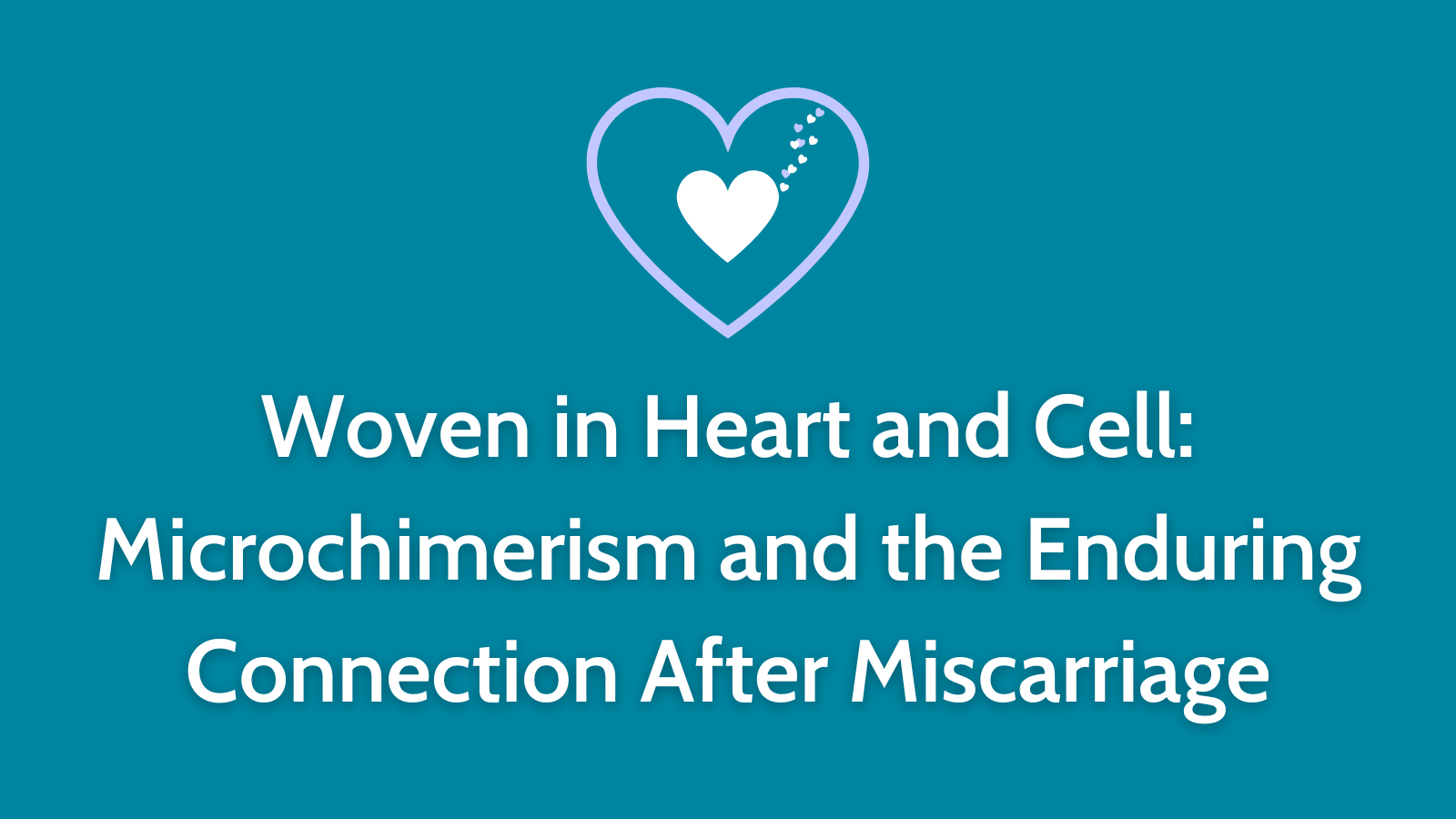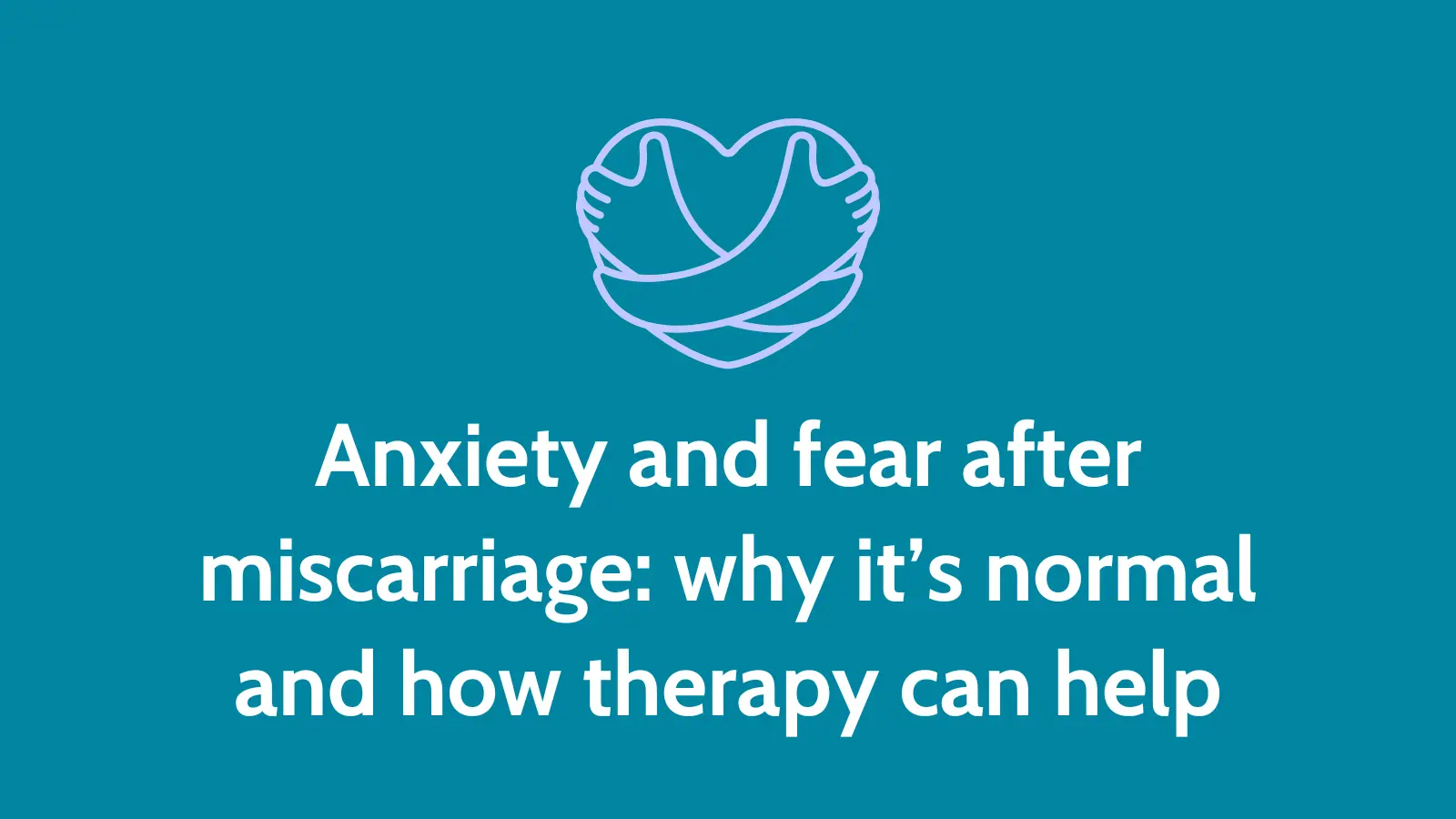Woven in Heart and Cell: Microchimerism and the Enduring Connection After Miscarriage
23rd May 2025

The Silence of Pregnancy Loss
Pregnancy loss is one of the most profound and private griefs a person can experience. For many, it’s a sorrow marked not by shared rituals or recognition, but by silence. The loss of a baby during pregnancy can feel like a loss of dreams, of possibility and love. And yet, even in the quiet, science reveals something astonishing – something that may bring comfort to those of us who carry this invisible pain. That something is called microchimerism.
Voices in the Silence: Myleene Klass and Miscarriage Awareness
In recent years, public conversations around pregnancy loss have slowly become more open, sometimes helping others affected to share their lived experiences. Among those who have helped to shine a light on this prevalent, important and deeply impactful topic is Myleene Klass. Myleene Klass is a British singer and television presenter and has spoken candidly about her devastating experience of multiple miscarriage. Her honesty and vulnerability has provided solidarity and comfort to countless others who have walked this same painful path. Indeed, her heartache and bravery has resonated deeply with me. As well as sharing her story publicly, Myleene has highlighted a lesser-known scientific source of solace known as microchimerism.
What is Microchimerism?
During pregnancy, foetal cells cross the placenta and enter the mother’s/pregnant person’s body, where they can remain for decades – sometimes forever. Similarly, maternal cells can enter the foetus, creating a permanent biological connection between a mother and her lost baby.
These cells can settle in various places – including the brain, and aptly – the heart. As Myleene points out, microchimerism offers a quietly powerful reminder that the connection between mother/birthing parent and child can live on at the cellular level. Through microchimerism, science affirms what many of us already feel: that our lost babies, however briefly with us, remain part of us. They leave a biological imprint – not simply a memory – but a presence, which can be lifelong.
While this knowledge doesn’t erase the grief, it offers a new way to understand the depth of the connection between parent and child. It provides scientific validation that your baby’s existence was real. That they made their mark, and part of them is still with you.
A Lasting Imprint
For those reading this who have sadly lost a pregnancy, the idea that some part of your child remains physically within you may be extremely comforting – a reminder that the bond formed during pregnancy doesn’t end with your heartbreaking loss. While the science is still emerging, what we do know paints a picture of a lingering presence of the body’s quiet memory of a life once carried.
“In the time I have been campaigning for better miscarriage care for women and their families, I discovered something called Microchimerism. In short, the cells of every baby you carry are transferred into your own body and for those who go on to have their rainbow baby, into them as well. When I hug my son, I hug them all. Each day, I literally carry my lost babies in my heart. In my body. They never leave you. I get a huge amount of peace knowing this”. Myleene Klass
To me, microchimerism – though invisible – provides a kind of tangibility of a loss too often overlooked. In a world that frequently minimises the pain of miscarriage, microchimerism reminds us that pregnancy loss, regardless of gestation, can leave a lasting mark. It illuminates that love and connection can be etched not only in our memory, but in our very cells. The love can literally live within our hearts.
If you have experienced the grief of pregnancy loss, know that your story doesn’t end with the loss itself. It continues, not just in your recollection, but as science now confirms, in biology.
The concept of microchimerism reveals that bonds formed during pregnancy are far more enduring than we ever imagined. Thank you to Myleene Klass for helping to reframe the narrative of pregnancy loss, not as a final chapter, but as a lasting imprint carried in love, remembrance, our sense of self, and in the very fabric of our being.
We carried them, and in a very real, biological way – we still do.
Written by Katy Schnitzler

